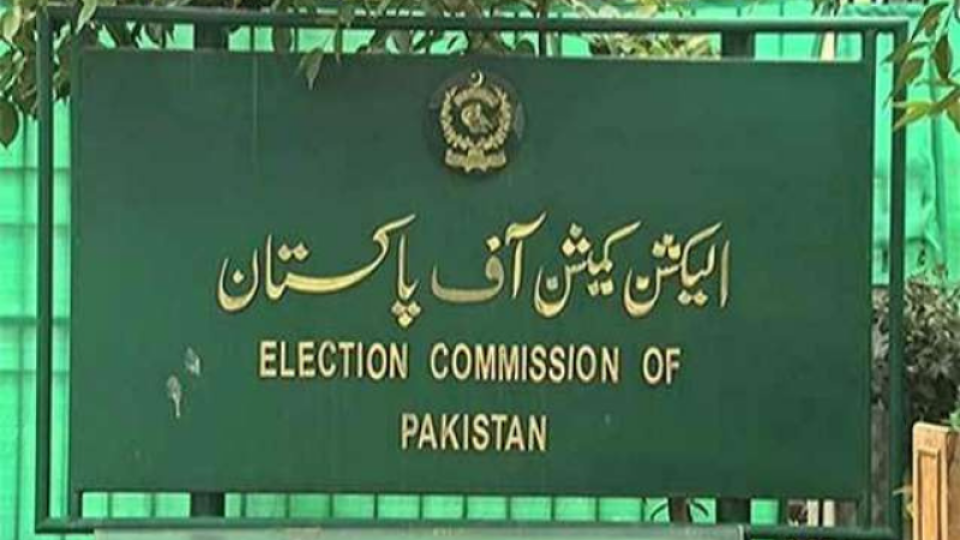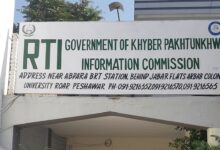RTI Act Does Not Apply to ECP and President’s Office, IHC Holds
Pakistan Information Commission Has No Jurisdiction Over ECP, President’s Office under RTI Act: IHC

ISLAMABAD: The Islamabad High Court (IHC) has ruled that the Right of Access to Information Act, 2017 does not apply to constitutional bodies such as the Election Commission of Pakistan (ECP) and the Office of the President, declaring that the Pakistan Information Commission (PIC) has no jurisdiction to issue binding directions to such institutions.
The verdict came in a series of writ petitions filed by the Election Commission of Pakistan vs. Pakistan Information Commission, in which the ECP challenged the PIC’s orders dated February 11, 2020. The PIC had earlier directed the ECP and the President’s Secretariat to share various administrative and financial details under the Right of Access to Information Act.
ECP Challenged PIC Orders
The petitions were heard by Justice Muhammad Asif Iqbal, who noted that the PIC’s orders were issued on appeals filed by citizens seeking details such as:
- Budgets allocated to the ECP and the Chief Election Commissioner’s office since 2017,
- Expenditures on vehicles, POL, maintenance, and official travels,
- Costs incurred during the 2013 general elections,
- Information on overseas voting policies, staff strength, and assets,
- Details of law officers’ appointments, and
- Information regarding auctions and disposals of official property.
The ECP argued that it does not fall within the definition of a “public body” under Section 2(ix) of the Right of Access to Information Act, 2017, as it derives its authority directly from Article 218 of the Constitution — not from any federal law. The ECP maintained that the Act applies only to executive bodies of the federal government, not to independent constitutional institutions.
Also Read: PIC’s Controversial Decision Raises Concerns Over Transparency and Access to Public Records
PIC Defended Its Authority
In response, the Pakistan Information Commission argued that it is empowered to ensure transparency and access to information from any body performing public functions and funded by public money. It maintained that both the ECP and the President’s Secretariat use funds from the Federal Consolidated Fund and therefore qualify as “public bodies” under the law. The PIC urged the court not to interfere with its lawful exercise of authority.
Court’s Findings: PIC Exceeded Its Jurisdiction
After hearing arguments, the IHC held that the PIC exceeded its jurisdiction by issuing binding directions to constitutional bodies. Referring to the Supreme Court’s 2024 judgment in Mukhtar Ahmed Ali vs. Registrar Supreme Court of Pakistan (PLD 2024 SC 192), the court reaffirmed that the Right of Access to Information Act, 2017 is confined to statutory and executive bodies, not institutions created directly by the Constitution.
Justice Muhammad Asif observed that while the Act provides a statutory mechanism for information disclosure, it cannot override the autonomy of constitutional institutions such as the ECP and the Office of the President, both of which operate independently from the executive.
“The Pakistan Information Commission, being a statutory entity, lacks jurisdiction to exercise supervisory or coercive powers over institutions constituted under the Constitution,” the order stated.
Transparency Still a Constitutional Obligation
However, the court emphasized that constitutional offices are not exempt from transparency or accountability. Citing Article 19A of the Constitution, Justice Asif underlined that every citizen has a fundamental right to access information in matters of public importance, and that this right applies to all state organs — legislative, executive, and judicial.
“While the Act of 2017 cannot be invoked against the ECP or the Office of the President, both institutions remain bound by Article 19A to ensure transparency and public access to information,” the judgment added.
The IHC directed the Election Commission of Pakistan and the President’s Secretariat to formulate and notify their own regulations or mechanisms for disclosure of public information within 90 days. Once such frameworks are in place, the requested information must be provided within 30 days, subject to reasonable restrictions such as national security or public interest.
Also Read: One Year On, PIC Fails to Enforce Order to Remove MOFA’s Controversial RTI Requirements
Verdict Summary
Summing up, the Islamabad High Court ruled that:
- The Right of Access to Information Act, 2017 does not apply to the ECP or the President’s Office;
- The Pakistan Information Commission has no jurisdiction to issue binding directions to these constitutional entities; and
- The PIC’s orders are declared void and without lawful authority.
Nonetheless, the court reiterated that constitutional bodies are still bound by Article 19A and must adopt mechanisms to ensure transparency, accountability, and public access to information.
The petitions were accordingly allowed, and the PIC’s orders were set aside.






